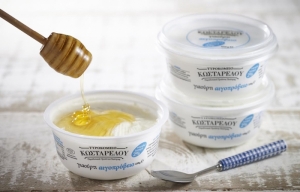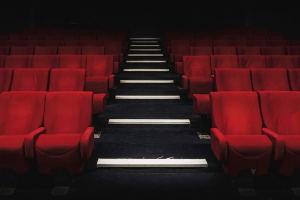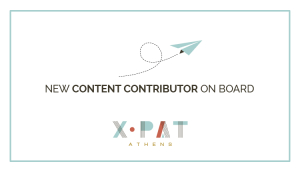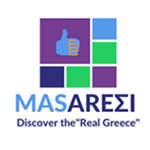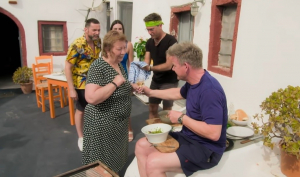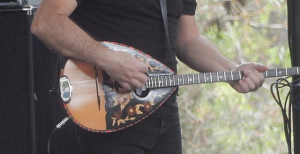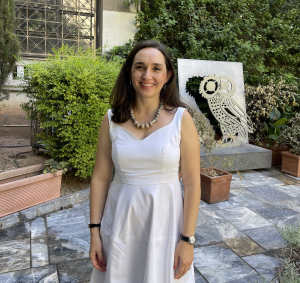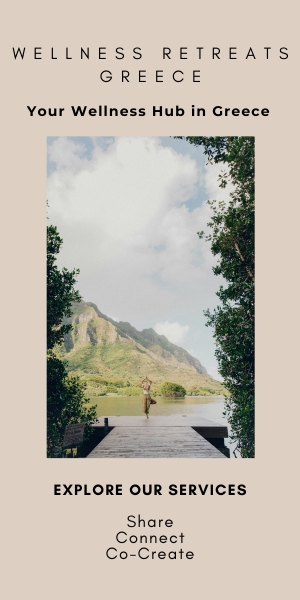WELLNESS HUB
XpatAthens
Kostarelos Cheesemakers
To read this article in full, please visit: Living Postcards
May 9 - News, Events & Destinations
Crete was chosen as 3rd most important place in the world by TIME Magazine, 12 Romantic Destinations for perfect getaways and a series of short videos that reveal the true beauty of Greece!
Please click HERE to view this issue of our newsletter!
Remember to stay connected with us through our weekly newsletter, Facebook, and Twitter!
Yorgos Lanthimos's Film 'The Favourite' Receives The Most BAFTA Nominations
The Festive Wish Lanterns Of Volos
We hope all your wishes come true!
XpatAthens Welcomes MASARESI As An Official Content Contributor
We are always looking to meet and connect with new content contributors. If you believe that your content would be a positive addition to XpatAthens, click here to learn more about working with us!
We are very happy to welcome MASARESI
as an official XpatAthens content contributor.
About MASARESI
Masaresi.com was founded by Maya Cornelissens-Andreadi, who shares her experience about how “to integrate in Greece and feel like a local”. Masaresi = μας αρέσει = we like it! Discover the “real Greece," while delving into all the aspects of Greek life – from modern lifestyle and culture to history, literature, traditions, and many more.
Explore Greece - Read About Greece - Buy Greek - Learn Greek
Gordon, Gino & Fred Go Greek: Yiayia's Hilarious Reaction To Gordon Ramsay's Food
The guys begin their adventure in Crete, Greece’s largest island, before navigating their way to stunning Santorini, making their way to the party island of Mykonos and finishing their trip in the Greek capital Athens and the monasteries of Meteora.
One of the series' highlights is when Yiayia Catrina from Santorini, renowned for her legendary Moussaka tastes Gordon’s Salsa Verde and criticizes how much salt Gordon has added.
Originally posted on itv.com
Greece Adds Zeibekiko Dance & Bouzouki To Intangible Cultural Heritage List
“The zeibekiko dance, the bouzouki, and similar musical instruments identify with Greece and its folk tradition. They played a leading role in Greek folk music during the 20th century,” Culture Minister Lina Mendoni said.
According to Mendoni, the bouzouki, tzouras, and baglamas are the most renowned Greek musical instruments abroad.
The zeibekiko dance
The zeibekiko was developed in large urban centers of Greece, mainly port cities including Piraeus, Patra, Syros, Thessaloniki, Volos, Chania, and Kavala among others, and the eastern Aegean islands.
The bouzouki instrument
The bouzouki was brought to Greece in the early 1900s by Greek refugees from Anatolia and quickly became the central instrument to the rebetiko genre and its music branches. It is now an important element of modern laïko pop Greek music.
The tzouras and baglamas instruments
Also added to Greece’s National Intangible Cultural Heritage List are the tzouras and baglamas. The two musical instruments are both connected to Greece’s folk tradition and associated with the zeibekiko dance.
The tzouras is related to the bouzouki. It is made in six-string and eight-string varieties.
The baglamas is a smaller version of the bouzouki pitched an octave higher, with unison pairs on the four highest strings and an octave pair on the lower D. Musically, the baglamas is most often found supporting the bouzouki in the Piraeus city style of rebetiko.
To read this article in full, please visit: news.gtp.gr
Ancient Greek Roots Of The Olympic Torch Relay
Before the start of each Olympiad, a procession of priestesses, clad in flowing white robes adorned with laurel wreaths, would ignite a torch using the rays of the sun, carrying the sacred flame to the host city of the Games. Legend has it that they used a skaphia, a crucible positioned to capture the sun's rays. As sunlight converged within the vessel, it set ablaze on the dry grass, birthing the eternal symbol of the Olympic spirit.
The tradition of the Olympic flame was rekindled in the modern era during the 1928 Amsterdam Games, where it burned fervently at the entrance to the Olympic Stadium, captivating the public's imagination. Conceived by Dr. Carl Diem of Germany, the modern Torch Relay drew inspiration from ancient Greek depictions and the writings of Plutarch. Dr. Diem's vision materialized in the form of the first relay, stretching from Olympia to Berlin as part of the grand Opening Ceremony of the 1936 Olympic Games. On July 20, 1936, a Greek torchbearer named Konstantin Kondylis embarked on a historic journey, igniting a tradition that would become an integral facet of every subsequent Olympic Games.
Main Image Credit: @xws.studio
Eleni Vardaki : Unlocking Mind-Body Mastery With EFT & Coaching in Greece
Later, I went to study in the UK, and I then worked in schools in England and in Sudan. And in 2012, I returned to Greece to settle down permanently.
If you want to explore more about Eleni’s work and discover how EFT
can help you achieve balance and well-being, visit her page HERE.
Q: What drew you to working specifically with stress, anxiety, and academic success?
Q: What role does the mind-body connection play in helping people perform better in all areas of their lives?
A: It allows for forward progress without as much struggle. When you’re using only your mind to achieve goals, but your nervous system is dysregulated, you may experience a range of stress-related or psychosomatic symptoms, which can even develop into actual physical health problems. This makes the journey toward your goals much harder.
By integrating the mind and body, you can regulate your nervous system, reduce these challenges, and approach your goals with greater ease. As a result, people often find they can go further, faster, and with less strain than they expected.
Q: Can you share a success story where your coaching made a big difference in someone’s life?
One that stands out is a teenager I worked with who had been seeing a Cognitive Behavioral Therapist for Trichotillomania, compulsive hair pulling caused by stress. The strategies she had tried weren’t working. But when she came to me, she didn’t present that issue. Instead, she and her mother booked four EFT sessions for help with Math exam anxiety at the end of the school year.
Interestingly, the Math exam anxiety cleared in just one session, leaving us with three remaining. So I asked what else she would like to work on, and she suggested trying EFT for her compulsion to pull her hair. Over the next three sessions, the behavior stopped almost completely. After the summer, we did a few additional sessions to address occasional triggers, but overall, within five sessions, the behavior had stopped.
Not only did this help with her academics, but it also brought immense relief. She had been worried about developing a permanent bald spot, and resolving this compulsion lifted a huge emotional burden.
Q: What are the most common stressors you’ve seen among Greek clients, and how do you help them face these challenges?
The top three are financial stress, relational stress, and health-related stress, whether it’s dealing with personal health issues, health anxiety, or caring for a family member with chronic health problems.
To address these, we use EFT tapping. We start by identifying the stressful situation, such as an upcoming invasive medical procedure, the emotions behind it, and where it’s felt in the body. Sometimes we focus on one of these aspects, other times we assign each of these aspects a number on a scale of 0 to 10 and use that as a baseline. During the session, we continuously monitor how the client’s numbers shift as we tap, which allows us to track progress in real time.
For example, with financial stress, we might work on fears about checking how much money is left in a bank account, the stress of a big unexpected expense, or getting hit by a huge tax bill. Just thinking about a large tax payment can trigger stress levels and frustration at the injustice of it an 8/10 in intensity, for example. By tapping while focusing on their negative emotions and stress sensations, we work on lowering both the emotional and physiological responses, making it easier to face these challenges with a clearer, calmer mindset so that they can think of how they can deal with it.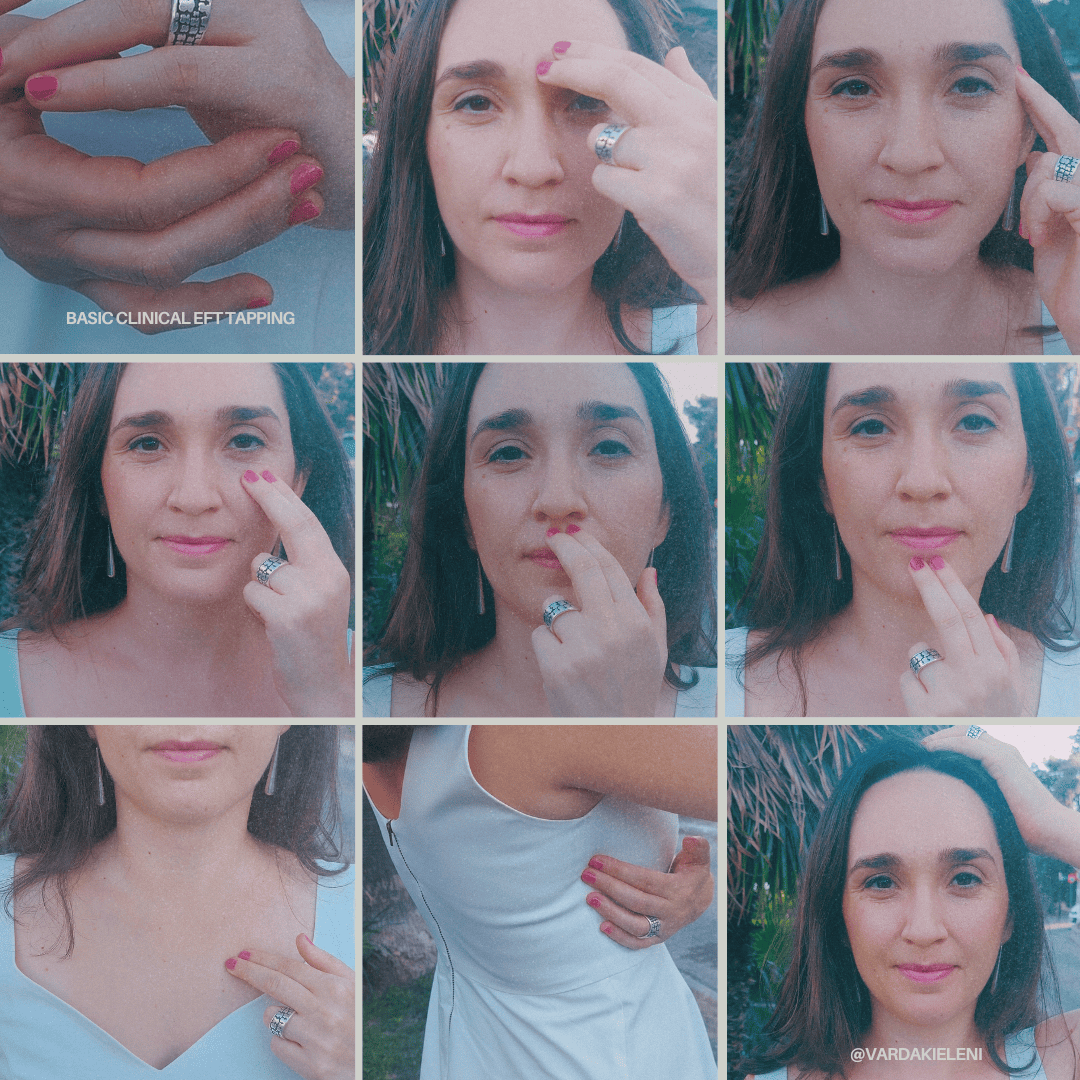
Q: What is one thing you would change about the way mental health and coaching are approached in Athens and Greece?
I think the coaching sector in Greece is strong. There are many skilled professionals, whether traditional life coaches who focus on top-down cognitive strategies and talk-based coaching interventions, or somatic coaching approaches like the one I offer. Psychotherapists, psychologists, and the entire mental health sector have a lot to contribute.
I’d like to see more collaboration between the medical and mental health sectors, especially in private healthcare. Many health issues are linked to lifestyle factors rather than genetics. Helping people change and improve their habits can make a huge difference in managing or even preventing stress-related health problems from becoming more serious. Coaching and therapy can also help patients manage stress and anxiety related to medical experiences.
If doctors referred patients with such challenges to relevant specialists in the mental health sector, it could greatly improve their well-being and overall quality of life. Strengthening partnerships between the medical and mental health fields would allow for a more holistic and effective approach to patient care. I believe bridging this gap across the two sectors by working together would benefit many people.
Q: And what about your clients? Have you noticed any changes, since for many people mental health is still a taboo topic?
Yes, I have noticed a change in Athens. More people are developing the humility and courage to say it’s okay to get help. It doesn’t make you weak, it makes you human.
In Athens there are new ideas, workshops, and experiences that people can benefit from and become more informed about mental health. When ignorance in an area decreases, people stop thinking, “Oh, I’m not crazy, so I don’t need to see a Psychologist.” Or “I’m fine, I don’t need to hire a coach for my stress” - even when they have medically diagnosed stress-related health issues. So with knowledge more readily available, I’m seeing more people willing to invest in coaching, therapy, and stress reduction services over here.
However, in more rural parts of Greece, there’s still more resistance. There’s a kind of competition around who is more tired or working harder, and less recognition that you can achieve your goals without sacrificing your health and well-being. That mindset seems to be less present in the countryside compared to Athens.
Q: What’s your favorite thing to do in Greece when you want to completely relax?
Oh, definitely going to the beach, all year round—winter, summer, spring, autumn. For me, it’s the sea above all, even more than other nature spots. But any kind of nature is restorative.
Q: And one final question…To whom would you recommend EFT tapping?
I would invite anyone curious to explore Emotional Freedom Techniques, especially those who have already done some work with psychologists or psychotherapists and have a conscious understanding of their blocks but feel stuck. EFT works really well when there’s a somatic, or body-based, component to the challenge, something that keeps you stuck on a physical or emotional level.
For example, it can help with overcoming procrastination towards an important goal, releasing or healing chronic lower back pain, or improving sleep when insomnia is an issue.
So, if you’ve done all you can with your conscious mind and you feel there might be subconscious emotional blocks stored in your body, EFT sessions might be a helpful next step to try.
A Hopeful Note
Looking ahead, we’re optimistic about the future of mental health and coaching in Greece. As awareness grows and collaboration between medical and mental health professionals strengthens, more people will feel empowered to seek the support they need. With evolving attitudes and innovative approaches like EFT gaining traction, we envision a future where holistic well-being becomes a natural part of everyday life, helping individuals and communities thrive.
Thank you, Eleni, for sharing your insights and inspiring us with your journey!
If you want to explore more about Eleni’s work and discover how EFT can help you achieve balance and well-being, visit her page HERE.
Hopscotch International Kindergarten
Established in 1997, Hopscotch International Kindergaten is located in a quiet area of Vari behind Jumbo, surrounded by 1000 square metres of garden. We are a dedicated English speaking Nursery and Kindergarten. With our open door policy and small groups, we offer a warm and welcoming environment for children and parents alike. We accept children from the age of two and offer a fun packed, full, activity based day, either on a full time or a part time basis and we accept registrations throughout the year.
By following the British Early Years Foundation Programme, we fully prepare our reception/kindergarten children for entry into all the English speaking schools' first grades.
If you would like to experience our unique environment for yourself, please feel free to call and make an appointment.
Contact: Helena Scott


